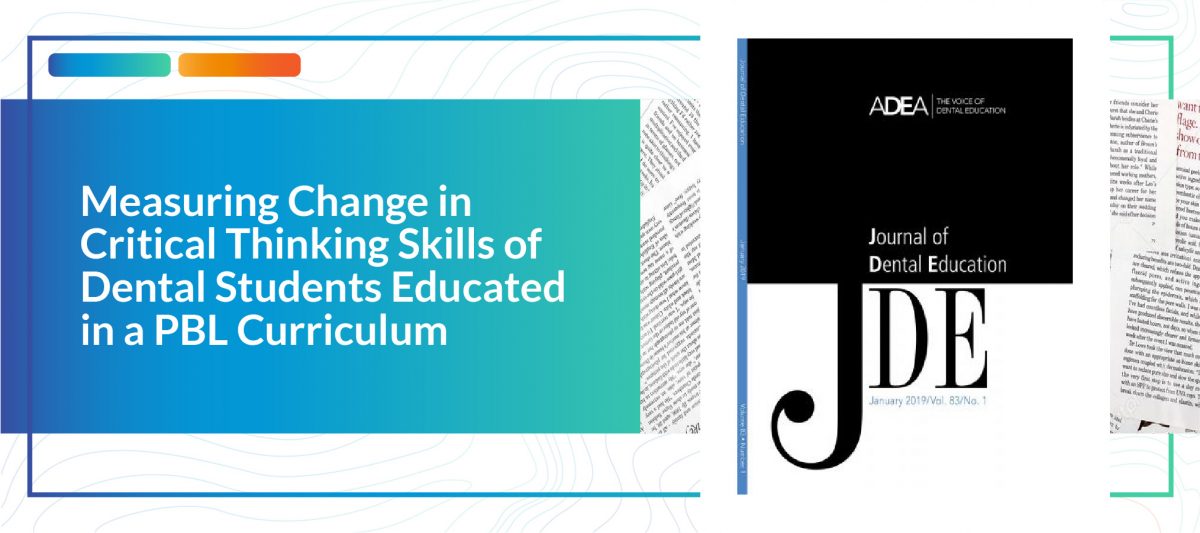Measuring Change in Critical Thinking Skills of Dental Students Educated in a PBL Curriculum

This study measured the change in critical thinking skills of dental students educated in a problem-based learning (PBL) pedagogical method. The quantitative analysis was focused on measuring students’ critical thinking skills achievement from their first through third years of dental education at the University of Southern California. This non-experimental evaluation was based on a volunteer sample of ninety-eight dental students who completed a demographics/academic questionnaire and a psychometric assessment known as the Health Sciences Reasoning Test (HSRT). The HSRT produced the overall critical thinking skills score. Additionally, the HSRT generated five subscale scores: analysis, inference, evaluation, deductive reasoning, and inductive reasoning. The results of this study concluded that the students showed no continuous and significant incremental improvement in their overall critical thinking skills score achievement during their PBL-based dental education. Except for the inductive reasoning score, this result was very consistent with the four subscale scores. Moreover, after performing the statistical adjustment on total score and subscale scores, no significant statistical differences were found among the three student groups. However, the results of this study found some aspects of critical thinking achievements that differed by categories of gender, race, English as first language, and education level.
Journal of Dental Education, vol. 76, no. 4, 2012
Bens Pardamean
